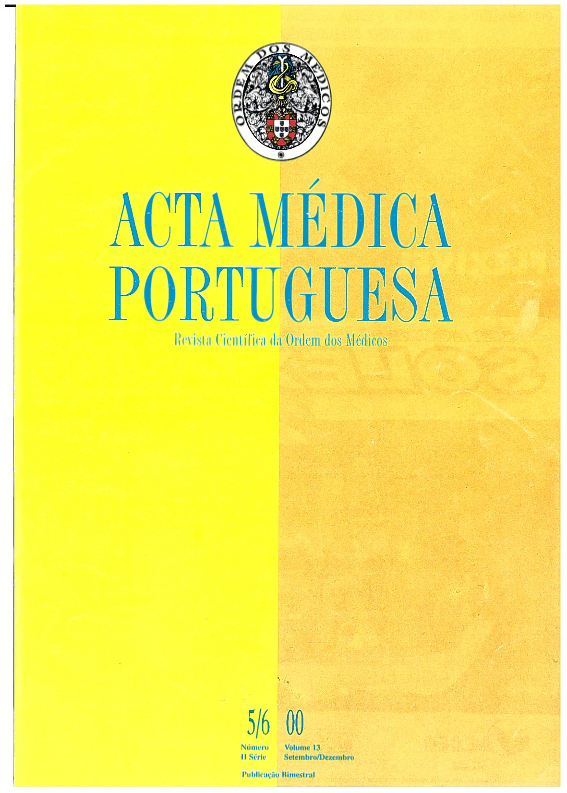Subclasses de imunoglobinas e doseamento de anticorpos específicos. Que papel no estudo das crianças com pneumonias recorrentes?
DOI:
https://doi.org/10.20344/amp.1803Resumo
Recurrent pyogenic infections, including pneumonia, are known to occur in children with a defective immune system. Until recently, diagnosis was made by measuring major immunoglobulin isotypes and IgG subclasses. Recent reports show that in some cases all these measurements are normal, but that there is a defect in the production of specific protein or polysaccharide antibodies.To study immune function in children with recurrent pneumonia to determine the most appropriate immunologic studies for the evaluation of recurrent infections in children.Forty-three children (ages 2 to 12 years; mean 5.3 years, 29 male) who were referred to our pulmonology clinic because of recurrent lower respiratory tract infections. Major causes of recurrent infections were excluded by clinical, radiological or laboratory studies. Immunologic studies included serum immunoglobulins, IgG subclasses, IgA subclasses, isohemagglutinins and antibody responsiveness to vaccination with tetanus, rubella, H. influenza b conjugate and pneumococcal polysaccharide.The majority of children had normal or elevated serum immunoglobulin and subclass levels. Three patients had low levels of IgG2 and IgA, alone or simultaneously. Eleven patients failed to respond to Hib or rubella vaccination and one failed to respond to pneumococcal immunisation.Our preliminary results seem to indicate that a high proportion of children with recurrent pneumonia have a demonstrable immunologic abnormality. There is no direct relationship between low levels of IgG subclass and the child's capacity to form antibodies to several antigens. Defects in antibody production are very specific and an extended panel is necessary. Examination of the antibody-forming capacity seems important in the initial evaluation of children with recurrent pneumonia.Downloads
Downloads
Como Citar
Edição
Secção
Licença
Todos os artigos publicados na AMP são de acesso aberto e cumprem os requisitos das agências de financiamento ou instituições académicas. Relativamente à utilização por terceiros a AMP rege-se pelos termos da licença Creative Commons ‘Atribuição – Uso Não-Comercial – (CC-BY-NC)’.
É da responsabilidade do autor obter permissão para reproduzir figuras, tabelas, etc., de outras publicações. Após a aceitação de um artigo, os autores serão convidados a preencher uma “Declaração de Responsabilidade Autoral e Partilha de Direitos de Autor “(http://www.actamedicaportuguesa.com/info/AMP-NormasPublicacao.pdf) e a “Declaração de Potenciais Conflitos de Interesse” (http://www.icmje.org/conflicts-of-interest) do ICMJE. Será enviado um e-mail ao autor correspondente, confirmando a receção do manuscrito.
Após a publicação, os autores ficam autorizados a disponibilizar os seus artigos em repositórios das suas instituições de origem, desde que mencionem sempre onde foram publicados e de acordo com a licença Creative Commons









